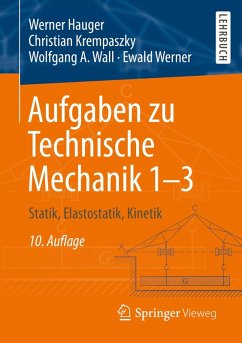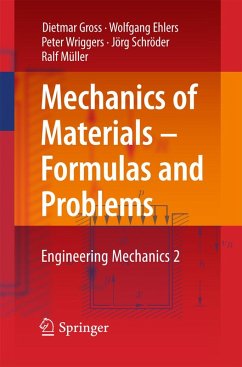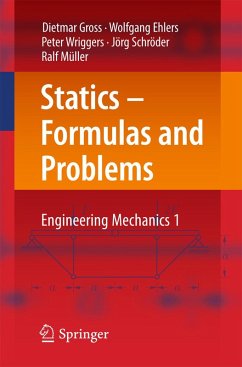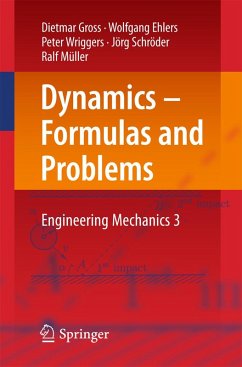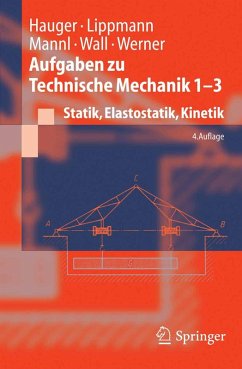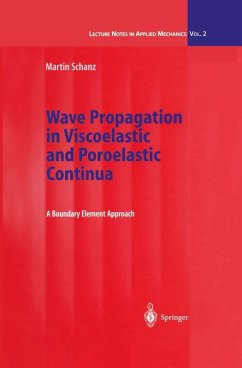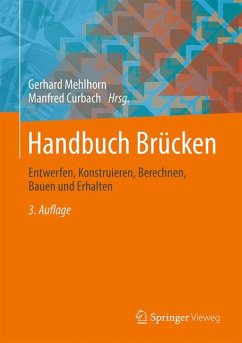
Engineering Mechanics 1 (eBook, PDF)
Statics
Versandkostenfrei!
Sofort per Download lieferbar
26,95 €
inkl. MwSt.
Weitere Ausgaben:

PAYBACK Punkte
13 °P sammeln!
Statics is the first volume of a three-volume textbook on Engineering Mechanics.The authors, using a time-honoured straightforward and flexible approach, present the basic concepts and principles of mechanics in the clearest and simplest form possible to advanced undergraduate engineering students of various disciplines and different educational backgrounds.An important objective of this book is to develop problem solving skills in a systematic manner.Another aim of this volume is to provide engineering students as well as practising engineers with a solid foundation to help them bridge the ga...
Statics is the first volume of a three-volume textbook on Engineering Mechanics.
The authors, using a time-honoured straightforward and flexible approach, present the basic concepts and principles of mechanics in the clearest and simplest form possible to advanced undergraduate engineering students of various disciplines and different educational backgrounds.
An important objective of this book is to develop problem solving skills in a systematic manner.
Another aim of this volume is to provide engineering students as well as practising engineers with a solid foundation to help them bridge the gap between undergraduate studies on the one hand and advanced courses on mechanics and/or practical engineering problems on the other.
The book contains numerous examples, along with their complete solutions. Emphasis is placed upon student participation in problem solving. The contents of the book correspond to the topics normally covered in courseson basic engineering mechanics at universities and colleges.
Now in its second English edition, this material has been in use for two decades in Germany, and has benefited from many practical improvements and the authors' teaching experience over the years. New to this edition are the extra supplementary examples available online as well as the TM-tools necessary to work with this method.
The authors, using a time-honoured straightforward and flexible approach, present the basic concepts and principles of mechanics in the clearest and simplest form possible to advanced undergraduate engineering students of various disciplines and different educational backgrounds.
An important objective of this book is to develop problem solving skills in a systematic manner.
Another aim of this volume is to provide engineering students as well as practising engineers with a solid foundation to help them bridge the gap between undergraduate studies on the one hand and advanced courses on mechanics and/or practical engineering problems on the other.
The book contains numerous examples, along with their complete solutions. Emphasis is placed upon student participation in problem solving. The contents of the book correspond to the topics normally covered in courseson basic engineering mechanics at universities and colleges.
Now in its second English edition, this material has been in use for two decades in Germany, and has benefited from many practical improvements and the authors' teaching experience over the years. New to this edition are the extra supplementary examples available online as well as the TM-tools necessary to work with this method.
Dieser Download kann aus rechtlichen Gründen nur mit Rechnungsadresse in A, B, BG, CY, CZ, D, DK, EW, E, FIN, F, GR, HR, H, IRL, I, LT, L, LR, M, NL, PL, P, R, S, SLO, SK ausgeliefert werden.




